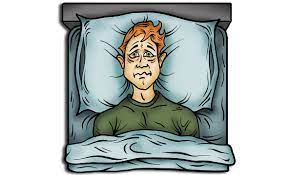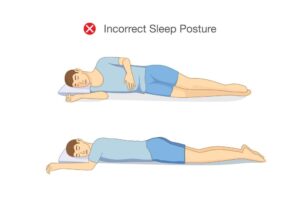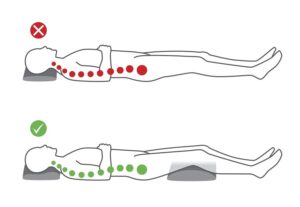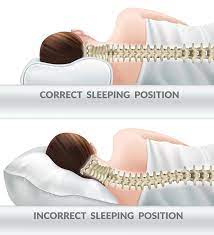

Sleep is one of the most vital components of our health, yet it is often affected by factors we don’t immediately consider, like posture.
I used to think that as long as I got enough hours of sleep, I would wake up feeling refreshed. But no matter how much I slept, I often woke up with a stiff neck and a sense of tiredness that lingered throughout the day.
It took me a while to realize that the root of my problem was not the quantity of sleep I was getting—it was my posture, particularly my neck posture while sleeping.
“Bad neck posture” isn’t just about the way we hold our neck during the day; it is also about how we position it during the night.
The wrong position can cause discomfort, stiffness, and even disturb the quality of sleep.
This article will dive into how bad neck posture impacts your sleep quality, why it happens, and what research has to say about this connection.
Article Contents:
- Understanding Bad Neck Posture During Sleep
- The Connection Between Bad Neck Posture and Sleep Disruptions
- How Neck Misalignment Leads to Poor Sleep Quality
- The Role of Sleeping Positions in Aggravating Neck Posture Issues
- The Long-Term Impact of Bad Neck Posture on Sleep and Health
- Real-Life Experiences: Waking Up with Stiff Neck and Poor Sleep
- Conclusion: How Bad Neck Posture Spoils Your Sleep Quality
Understanding Bad Neck Posture During Sleep
We tend to think of posture as something that only matters when we are awake—when we are sitting at a desk or walking around.
But the reality is, our posture while we sleep can have just as much impact on our physical comfort and overall health.
Specifically, bad neck posture while sleeping is a common culprit behind restless nights and groggy mornings.
What constitutes “bad neck sleeping position”?
Essentially, any position that places strain on the neck muscles, causing them to remain tense or twisted during the night.
If your head is too elevated, tilted at an awkward angle, or not adequately supported, your neck muscles are forced to compensate.
This leads to stiffness and discomfort, which can prevent you from entering the deep, restorative phases of sleep that your body needs.
In my experience, I noticed that I would often wake up with a sore neck after spending the night in a poor sleeping position—sometimes it was the way I used too many pillows, or other times I found myself in a hunched position that mimicked bad posture I would have during the day.
This, I soon realized, had an immediate and significant effect on how rested I felt the next morning.
The Connection Between Bad Neck Posture and Sleep Disruptions
Bad neck posture during sleep does not just cause discomfort—it can directly lead to disruptions in your sleep cycle.
Research has shown that the position of your neck can influence whether you experience restorative sleep stages, particularly deep sleep and REM sleep, both of which are crucial for feeling refreshed.
A study published in the Journal of Clinical Sleep Medicine found that individuals with poor neck posture while sleeping, especially those using a bad pillow or misaligned sleeping position, experienced more frequent awakenings throughout the night.
These awakenings were often caused by the body’s attempt to readjust the neck to relieve discomfort.
When I realized that I was waking up multiple times in the night to shift or adjust my pillows, it became clear that my “bad neck posture while sleeping” was more than just a physical issue—it was affecting the overall quality of my rest.
By constantly pulling me out of deep sleep, the discomfort in my neck was undermining my sleep cycle.
How Neck Misalignment Leads to Poor Sleep Quality
Neck misalignment occurs when the natural curvature of the cervical spine (the neck region of your spine) is compromised.
In a proper sleeping position, the neck should remain neutral, with no excessive bending or twisting.
However, when you sleep in a position that places your neck at a sharp angle—whether it is too far forward, backward, or sideways—this misalignment puts undue pressure on the muscles and vertebrae (C5 to be precise) of the neck.
The best sleeping position for a bad neck involves maintaining this neutral alignment, but many people (myself included) do not realize when they’re misaligning their neck.
For instance, using a pillow that is too high can push the neck into a forward curve, much like the posture you might assume while looking at your phone all day.
This position strains the neck and can result in what’s known as a stiff neck bad sleeping position when you wake up.
Once your neck is misaligned, it creates a chain reaction in the body. Your muscles tense up to protect the neck from further strain, leading to discomfort and restlessness.
This tension can make it difficult to fall asleep and stay asleep, further degrading your sleep quality.
The Role of Sleeping Positions in Aggravating Neck Posture Issues
The way you sleep can either improve or worsen your neck posture.
When I first started paying attention to my sleeping habits, I noticed that certain positions consistently left me with a sore neck from stress and tension.
The wrong position can make neck pain worse, especially if you already have existing posture issues during the day.
Here’s a breakdown of how common sleeping positions affect neck posture:
- Back sleeping: This is often regarded as the best sleeping position for bad neck posture because it allows for even weight distribution and keeps the spine in a neutral position. However, using a pillow that’s too thick or too thin can still lead to neck strain.
- Side sleeping: Sleeping on your side can also be a good option, but only if the pillow is thick enough to support the neck in line with the spine. If the pillow is too low or too high, it can cause misalignment, leading to neck discomfort.
- Stomach sleeping: This is widely considered the worst sleeping position for bad neck and shoulders. When you sleep on your stomach, you’re forced to turn your head to the side, which strains the neck muscles and misaligns the spine.
I personally found that after switching from a side sleeping position with an overly soft pillow to a back sleeping position with better neck support, my neck pain significantly reduced.
It was clear that my bad neck sleeping position was contributing to both my discomfort and my restless nights.
The Long-Term Impact of Bad Neck Posture on Sleep and Health
The consequences of bad neck posture go far beyond one restless night. Over time, repeated strain on the neck can lead to chronic pain, which becomes harder to treat the longer it persists.
A consistent bad neck posture while sleeping can cause ongoing muscle tension, neck stiffness, and even contribute to issues like headaches or upper back strain.
But perhaps even more concerning is the impact on your overall health.
Poor sleep quality, often caused by neck discomfort, has been linked to a range of health problems including weakened immune function, increased risk of heart disease, and mood disorders like anxiety and depression.
In fact, I noticed that my mood was significantly worse on days when I woke up after a night of tossing and turning due to neck pain.
Real-Life Experiences: Waking Up with Stiff Neck and Poor Sleep
Like many people, I did not immediately connect my sleep quality with my neck posture.
But after countless mornings of waking up with a stiff neck bad sleeping position, I started to realize that my sleep posture was at the root of the issue.
I remember one particularly bad morning when I woke up with a sharp pain in my neck, the kind that made it impossible to turn my head without wincing.
That day, I could barely focus on work, and all I could think about was the constant discomfort radiating from my neck.
It was not until I started making conscious adjustments to my sleeping position that I saw real improvements in both my sleep and my neck health.
Conclusive Analysis: How Bad Neck Posture Spoils Your Sleep Quality
In conclusion, the position in which we sleep has a profound impact on the quality of our rest.
Bad neck posture while sleeping not only leads to immediate discomfort, but it also disrupts the sleep cycle, making it harder to reach the deep, restorative phases of sleep.
Over time, this poor posture can contribute to chronic pain and negatively impact both physical and mental health.
From my own experience, I have learned that taking steps to fix poor neck posture—especially at night—can make a world of difference in how rested and refreshed you feel each morning.
By becoming aware of the best sleeping position for bad neck and shoulders and making small adjustments to how you sleep, you can greatly improve your sleep quality and prevent those dreaded mornings of waking up with a stiff neck.
References:


